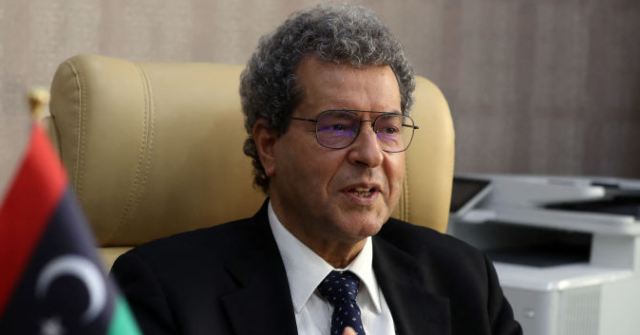The National Oil Corporation (NOC) of Libya announced a memorandum of understanding (MOU) with ExxonMobil on Monday, potentially jump-starting the oil giant’s activities in war-torn Libya after more than a decade of inactivity.
According to NOC, the memorandum encompasses geological surveys to explore four areas off the northwestern coast of Libya. Libya has enormous untapped offshore oil and gas reserves, added to the largest known onshore reserves on the African continent.
NOC signed similar MOUs with BP and Shell this year to explore different oil fields, making its first effort to significantly expand operations since the disastrous Obama-Clinton military intervention in 2011 sent Libya spiraling into civil war and terrorist anarchy.
ExxonMobil, the largest private energy company in the world, dramatically reduced its operations in Libya in 2013 due to the deteriorating security situation. The company said at the time it was “not giving up on seeking to develop a business in Libya,” but the risks of operating there had become too great.
NOC chairman Masoud Suleiman said on Wednesday that Libya’s crude oil production has grown to over 1.4 million barrels per day (bpd), plus 2.55 billion cubic feet per day of natural gas. The country’s peak oil production was about 3.4 million bpd in the early 1970s. The level of production reported by Suleiman on Wednesday was the best Libya has been able to reach in twelve years, and he anticipated two million barrels per day could be achieved by 2028.
Suleiman said the NOC is eager to expand its partnership with American companies like ExxonMobil and he predicted foreign partners would be pleased with the technical expertise Libyan engineers can bring to the table. The United States is one of Libya’s top oil customers, along with China and France.
Libya remains a divided country and serious security challenges remain. The NOC operates under the Government of National Unity (GNU) headed by Prime Minister Abdulhamid Dbeibah. The GNU is the U.N.-endorsed government headquartered in Tripoli.
A rival government, known as the House of Representatives (HOR) or “Government of National Stability,” is based in Tobruk. The HOR is aligned with warlord Khalifa Haftar and his Libyan National Army (LNA).
Haftar and the HOR want to control all of Libya and they are particularly eager to control its lush oil resources. The two governments have quarreled over control of the NOC in the past and the oil company’s headquarters have been stormed by gunmen on more than one occasion, most recently in May 2025, when armed members of a militia camped near Tripoli marched into the NOC lobby and demanded jobs. The company was not hiring that day, so they got arrested instead.
The HOR took the opportunity of the May incident to announce that it might take “precautionary measures that include declaring force majeure on oil fields and terminals” to deter future attacks. The HOR has also considered demanding NOC headquarters be relocated to a “safer” city outside of Tripoli.
Another troubling incident in May was the assassination of Abdulghani “Ghenwa” al-Kikli, a militia leader nominally aligned with the GNU. Ghenwa was eliminated by an intense ambush near his camp in southern Tripoli. The attackers were evidently a group of militias that were much more loyal to the GNU than Ghenwa, who had recently made a power play by attempting to seize control of Libya’s biggest telecom company — arguably the biggest prize in western Libya next to the NOC itself.
Ghenwa’s idea of a hostile corporate takeover apparently involved kidnapping and executing the telecom company’s chairman of the board. Ghenwa was, in turn, lured into the ambush that killed him by an offer to renegotiate his position. The “negotiations” took the form of roughly three hours of heavy gunfire. The leader of the paramilitary brigade that took out Ghenwa was proud that it only took three hours to gun him down, describing the action as a “precise operation” against “the most brutal criminal forces in the country since 2011.”
GNU Prime Minister Dbeibah announced the death of his putative ally as though an especially troublesome pest had been fumigated from Tripoli. He congratulated government security forces for quickly seizing control of the turf held by the late Ghenwa and said an important step had been taken toward “ending irregular groups and reinforcing the principle that there is no place in Libya except for state institutions, and no authority except the law.”
Human rights groups complained the GNU remained much too reliant upon paramilitary organizations and militias with grandiose titles like “Stability Support Authority” (the name of Ghenwa’s outfit) to handle its dirty work. Also, as the Ghenwa example illustrated, militia groups could turn rogue and seize valuable assets at any moment to increase their wealth and power, and the most valuable assets in Libya are its oil and gas fields. As brutal as the process might be, foreign investors will be quietly pleased to see the GNU consolidating its authority and getting rid of its loose cannons.
Read the full article here
